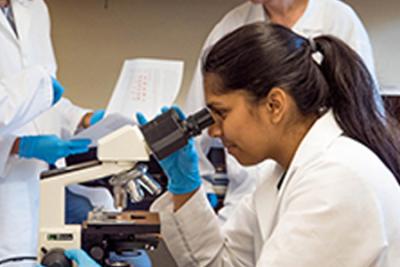
The availability of a wide range of adjuvants facilitates the rational pairing of antigen and adjuvant to maximize vaccine efficacy, but also allows vaccines to be optimized for their target population, such as vaccines for the elderly or newborns.
Innate immune receptors and signaling pathways associated with the activation of immune cells continue to be discovered, representing potentially novel targets for vaccine adjuvants. In addition to using natural immunostimulatory compounds (eg. Lipid A) or their derivatives (eg. INI-2004) as adjuvants, small molecule agonists of innate immune receptors (eg. combination adjuvant Fos47) and other targets are increasingly used in place of the larger and more complex naturally occurring immunostimulators, making large drug libraries attractive targets for screening to identify novel adjuvants. Adjuvant discovery is further aided by the increasing use of in silico screening approaches, and research into the mechanism of action regarding aspects such as the target molecule, binding site on the target molecule, or the downstream signaling triggered by the binding.
Adjuvant discovery and mechanistic research is supported by the NIAID under three main mechanisms:
- The Adjuvant Discovery program was launched in 2003 and has been re-issued every 5 years (most recently in December 2022). The Adjuvant Discovery SBIR program started in 2017 to engage the small business community, and has been re-issued annually as part of PHS’s omnibus solicitation.
- The Molecular Mechanism of Combination Adjuvants (MMCA) program was launched in 2016 and reissued in 2021 to support further exploration of the potential of adjuvant combinations and to support studies that define the molecular and immunological mechanisms by which these combinations work. A concept for a FY2026 renewal of the MMCA program has been approved by NIAID’s Advisory Council.
- NIAID accepts Investigator-initiated Grants focused on adjuvant discovery in response to NIAID’s parent announcements for R-type grants.
Several adjuvants that resulted from NIAID adjuvant discovery grants and contracts are accessible through the NIAID Vaccine Adjuvant Compendium (VAC).
Featured Research
- High-throughput screen identifies non inflammatory small molecule inducers of trained immunity - PubMed
- Structure-Activity Relationship Studies in Benzothiadiazoles as Novel Vaccine Adjuvants - PubMed
- Lipid nanoparticle composition for adjuvant formulation modulates disease after influenza virus infection in quadrivalent influenza vaccine vaccinated mice - PubMed
- Airway surveillance and lung viral control by memory T cells induced by COVID-19 mRNA vaccine
- Evaluation of Four Adjuvant Combinations, IVAX-1, IVAX-2, CpG-1826+Montanide ISA 720 VG and CpG-1018+Montanide ISA 720 VG, for Safety and for Their Ability to Elicit Protective Immune Responses in Mice against a Respiratory Challenge with Chlamydia muridarum
- Vaccination with Mincle agonist UM-1098 and mycobacterial antigens induces protective Th1 and Th17 responses
- Early T-bet promotes LFA1 upregulation required for CD8+ effector and memory T cell development


